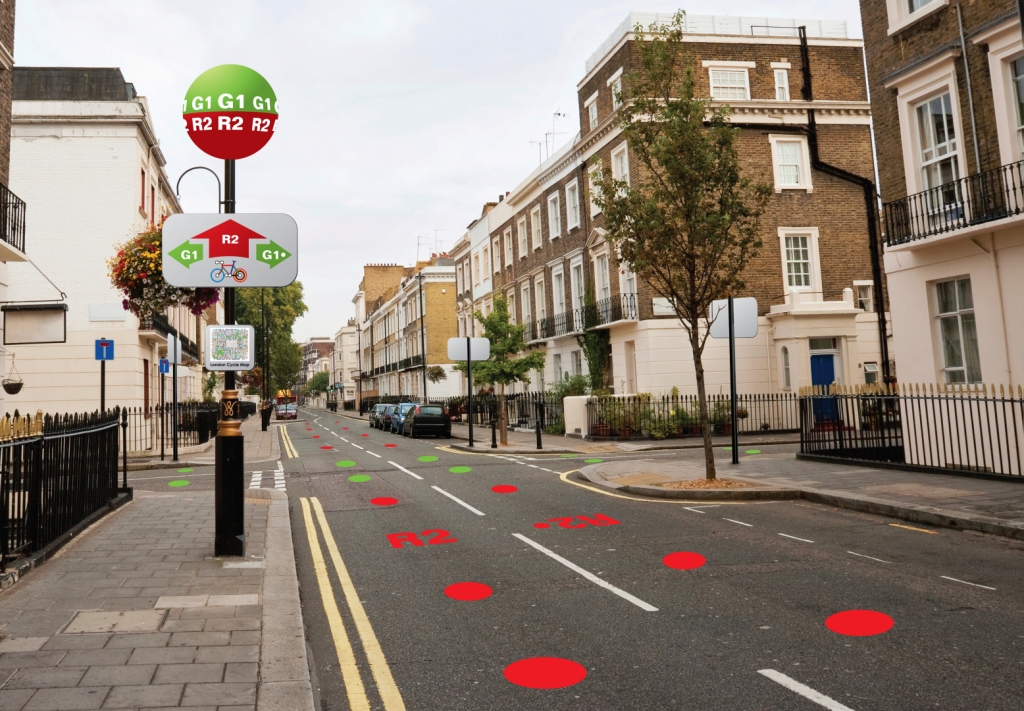I’ve just returned from two thoroughly enjoyable days at Play’s The Thing, a conference exploring creative aspects to well-being. Congratulations and thanks to the host Pat Kane and his team; what a great group of people you assembled for a unique and wonderful occasion.
At the conference I gave a talk on cycling. Part of what I wanted to convey was that cycling is a canny way of injecting playfulness into our daily lives. Most people commute, and so twice a day could be bringing out their inner child and getting healthier, happier and fitter on two wheels.
But part of my brief was also to talk about social enterprise; and for this I wanted to champion some of the overlooked good things about modern life and capitalist economies. Here’s a good thing: whenever any two people trade they are basically trusting each other to perform a favour; so as trade has become global, so has trust. This has the knock-on effect of making trading countries less likely to go to war; a phenomenon known as ‘gentle commerce’. Trade also associates positively with democracy and longer life expectancy – all of which should be a cause for great celebration.
By raising these points, I wanted to highlight the commonly committed logical fallacy of confusing the statement “capitalism has some things wrong with it” with “capitalism has everything wrong with it”. The first is correct, the second is ludicrous. Indeed, it can arguably be a little hypocritical; often people who advocate the second statement are so busy denouncing the system, they’re not actually doing anything to improve peoples’ lives within it. Have I missed the point? Should I be sitting in a tent rather than running Cycle Lifestyle? Instead of picking up the phone, writing emails, attending meetings, packaging up and posting magazines, writing articles and lobbying politicians, should I be sipping on a Starbucks coffee and denouncing the modern world? Bringing out our inner child doesn’t have to make us childish.
I’d also include a certain kind of "socialist" in this category of people who ‘denounce rather than do’. I'm not talking about all leftists - just the ones who make you wonder whether their insisting repeatedly that the state "should" do something is actually a mask for them saying “I can’t personally be bothered to do anything”. This is why I offered a defence of the Big Society at the conference. Strong communities are absolutely crucial to the well-being of a society, and so a culture of voluntarism, local enterprise and togetherness is a worthy cause – whether it’s advocated by David Cameron or, indeed, Neil Kinnock, whose passionate keynote speech in Blackpool in 1988 seems to have been forgotten by Guardian readers.
Isn’t this a bit of a digression from cycling? Far from it. Cycle Lifestyle’s London Cycle Map Campaign is calling for a properly signed and mapped network of safer, quieter routes (mostly comprising the 2,000 kilometres of London Cycle Network). This would enable new cyclists to navigate confidently in the capital. Rather than channelling bikes onto main roads, where there is a heavier concentration of dangerous trucks and other fast moving vehicles, a London Cycle Map would make cycling on the backstreets as easy as catching the Tube.
The point is: this, too, is a classic social enterprise approach. It combines realism about the economy with a real desire to fix aspects of it that aren’t working properly. The realism accepts that Londoners are going to need busy main roads and trucks for the foreseeable future. (How else are 10 million mouths going to get fed every day? How else will businesses and tradesmen transport goods and equipment?) The real desire I'm talking about means championing a solution that really could work. If you want to get to the moon on a bicycle, you don’t really want to get to the moon.
Likewise, if you want to get more people cycling but you don’t have a sensible proposal for doing it, your desire can’t be taken as seriously. Regretfully this is an apt description of the London Cycling Campaign’s adversarial but ineffective approach. By campaigning for more cycle routes on main roads (and against lorries) they are picking an unnecessary and unwinnable fight with capitalism. Despite (ironically) having a huge budget and massive resource base, in their hands the bicycle is in danger of becoming a naively regressive symbol (like a tent) rather than a symbol of hope and progress like Parker’s glorious London Cycle Map design.





